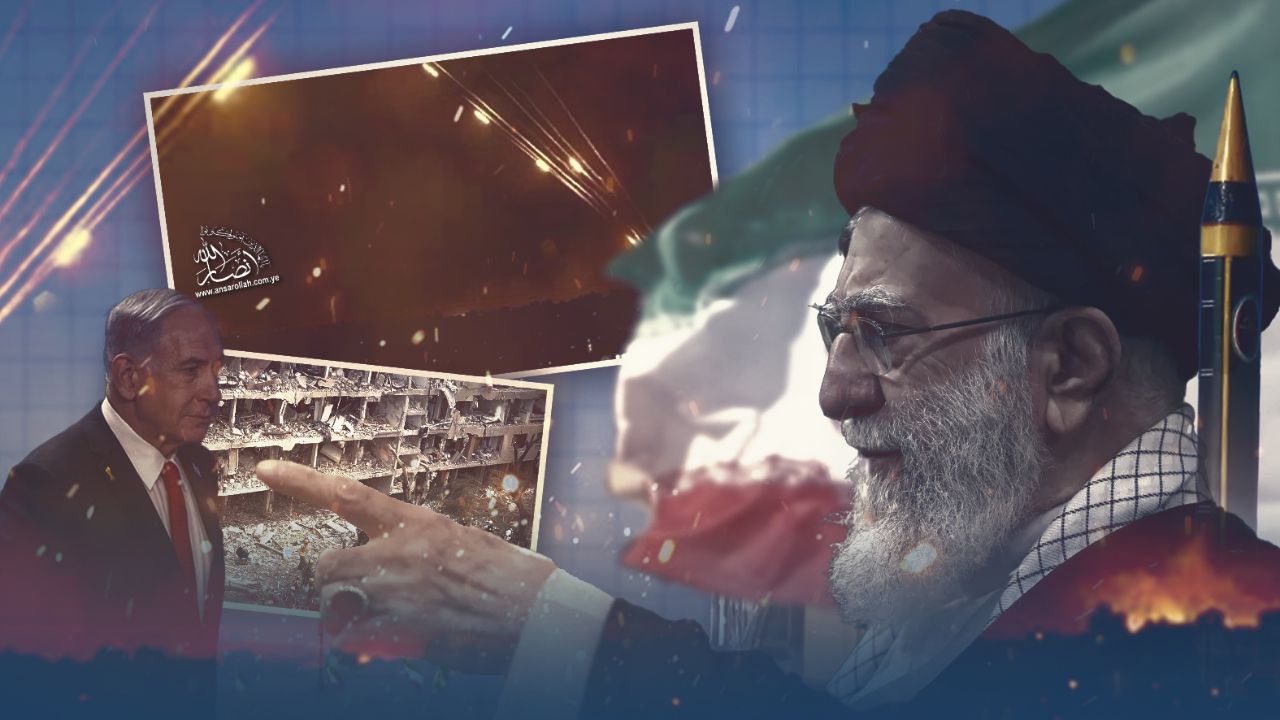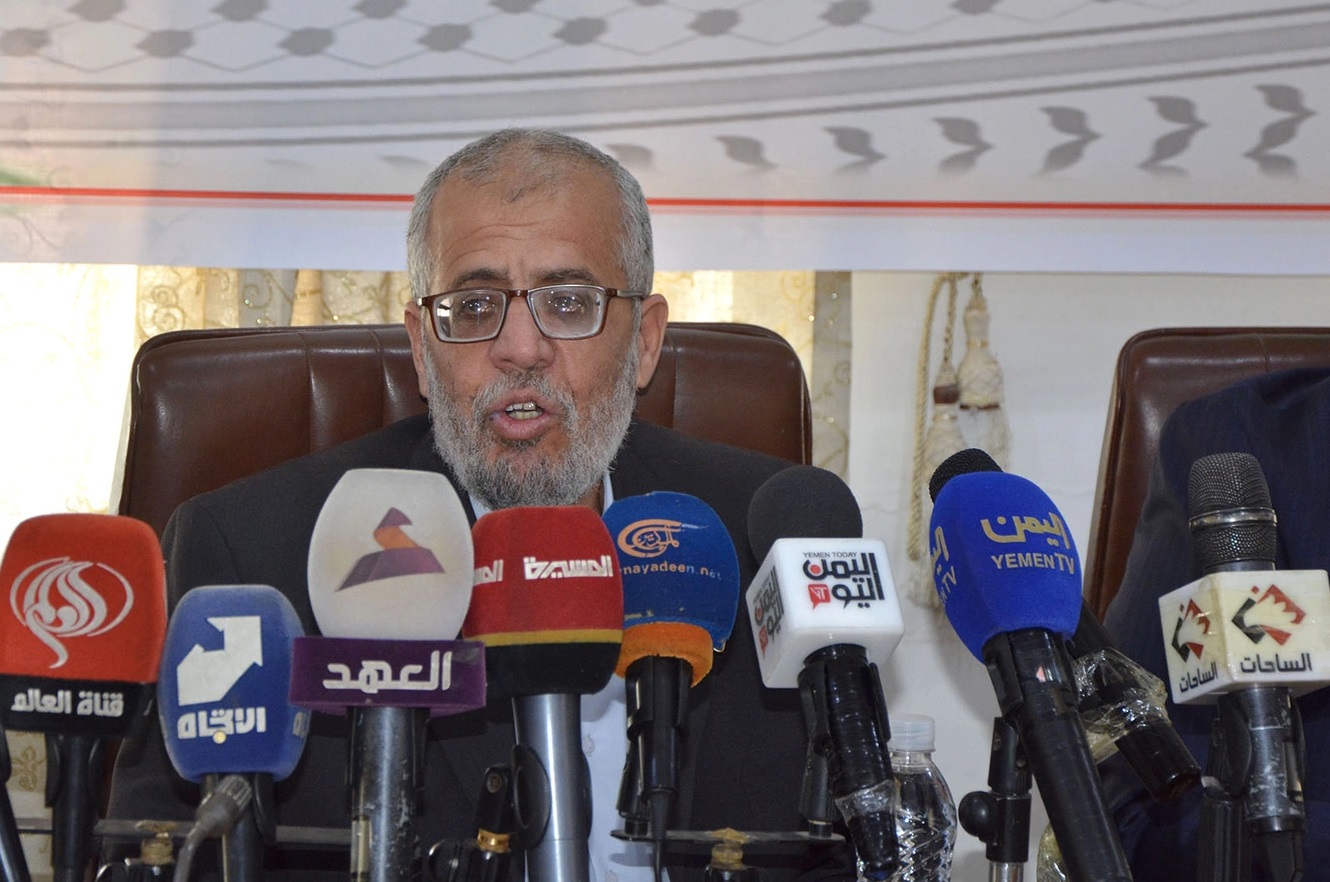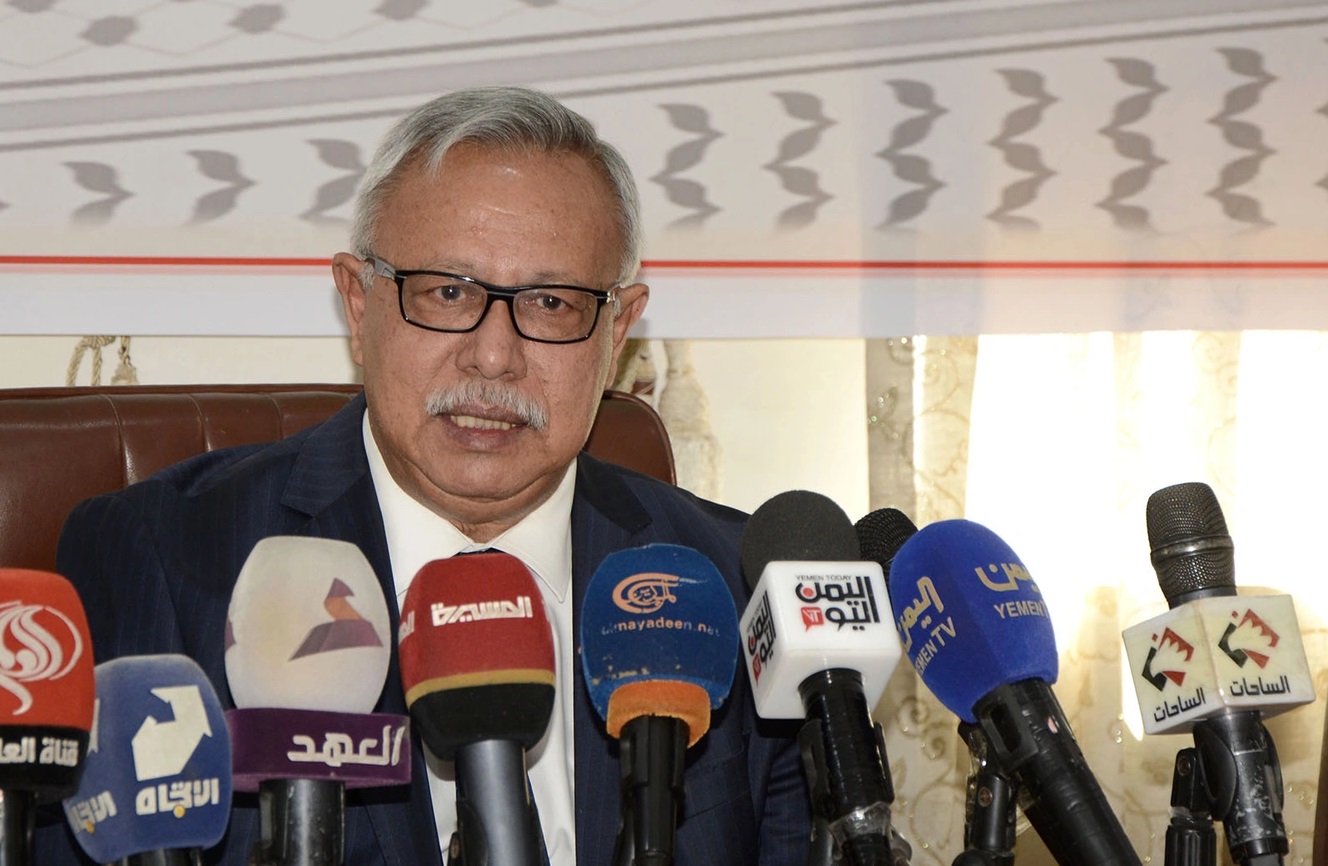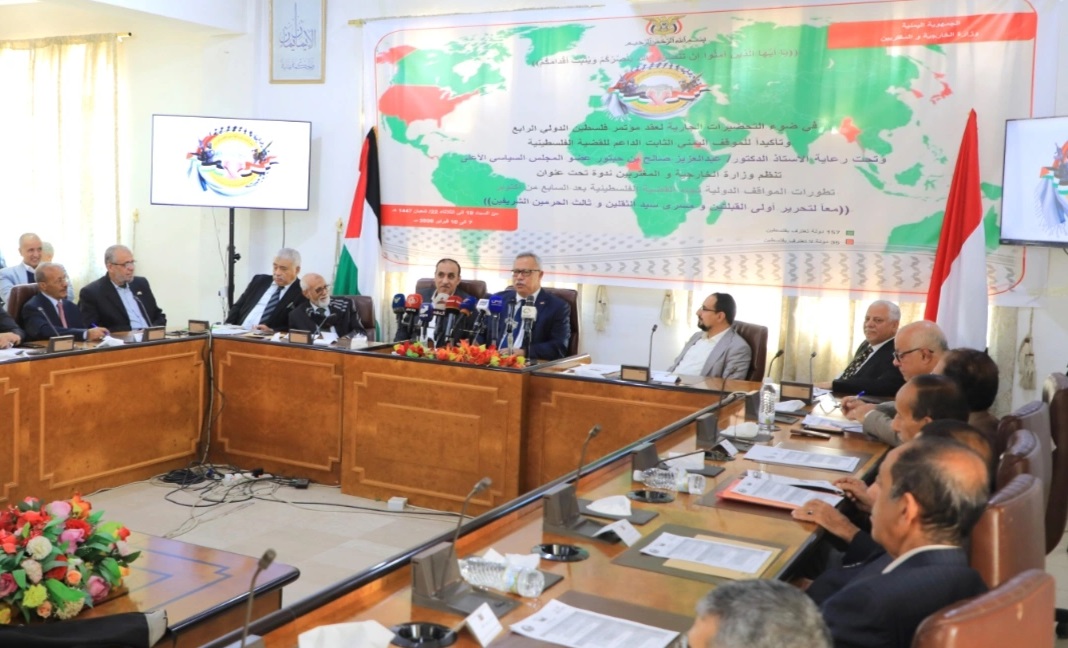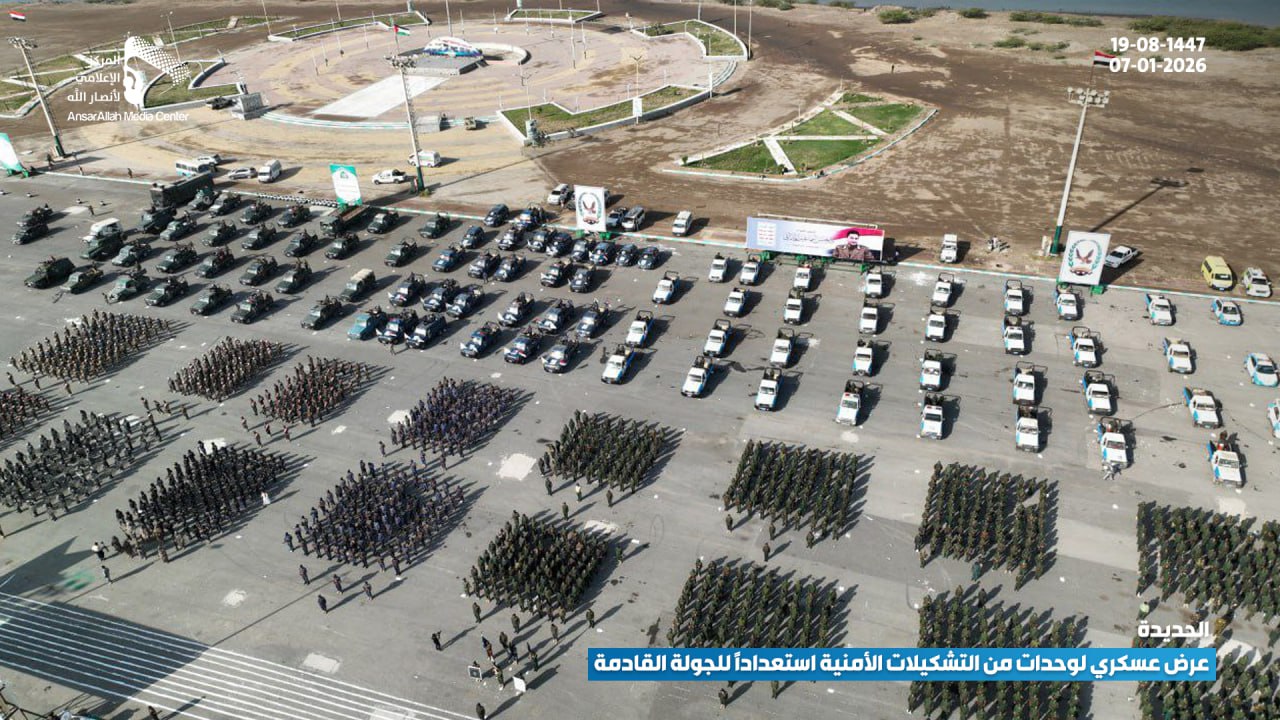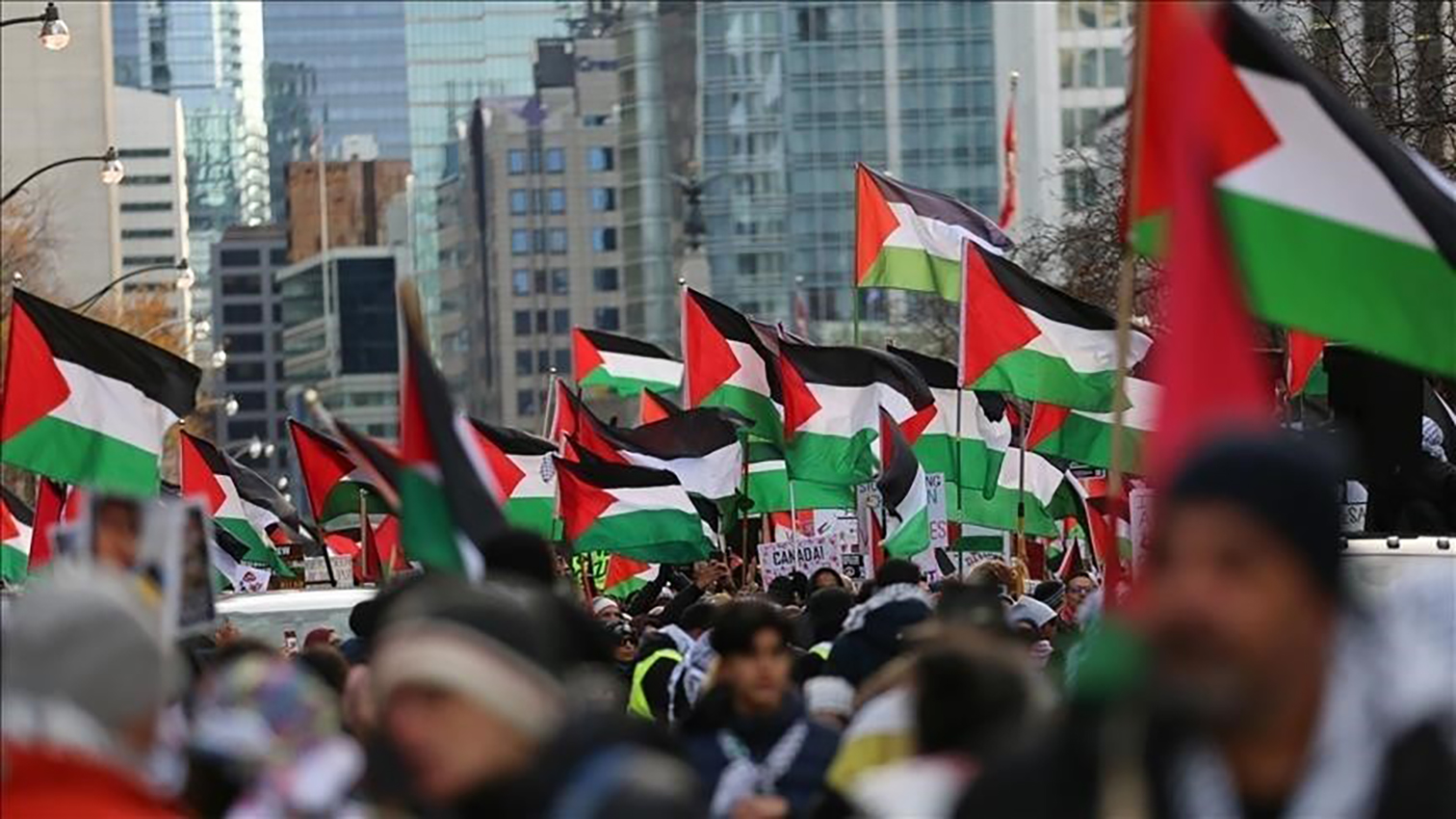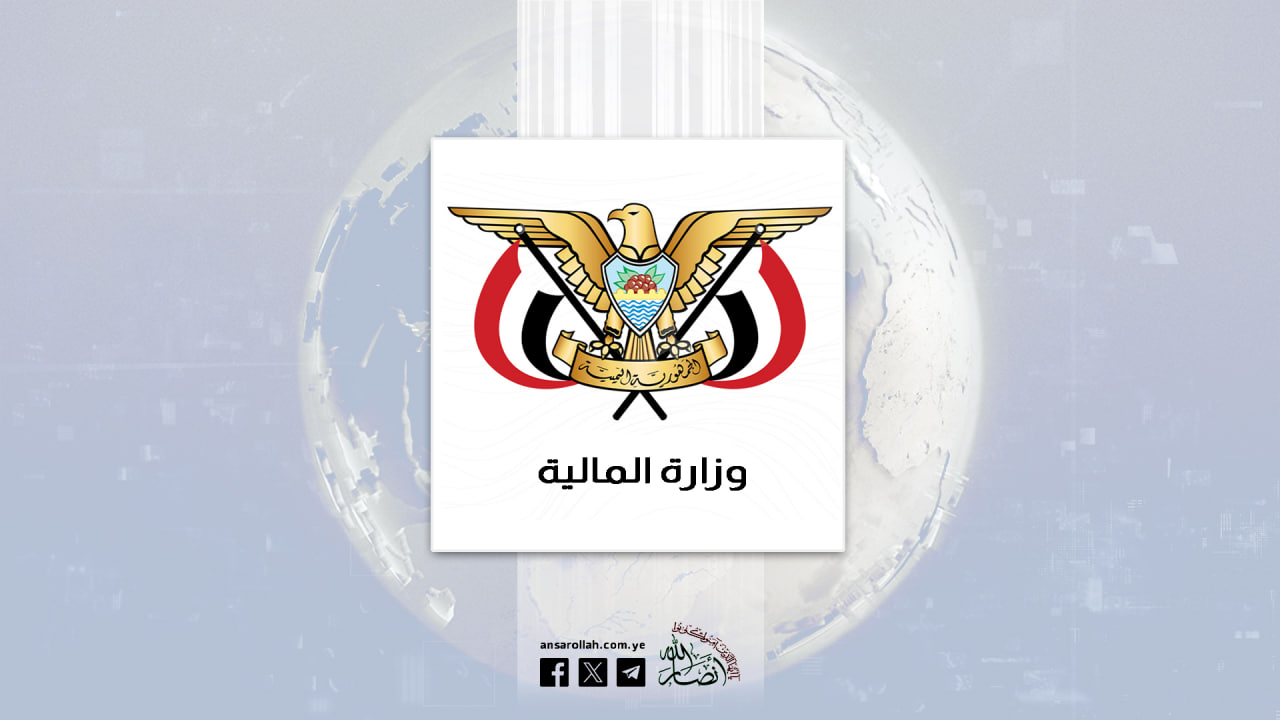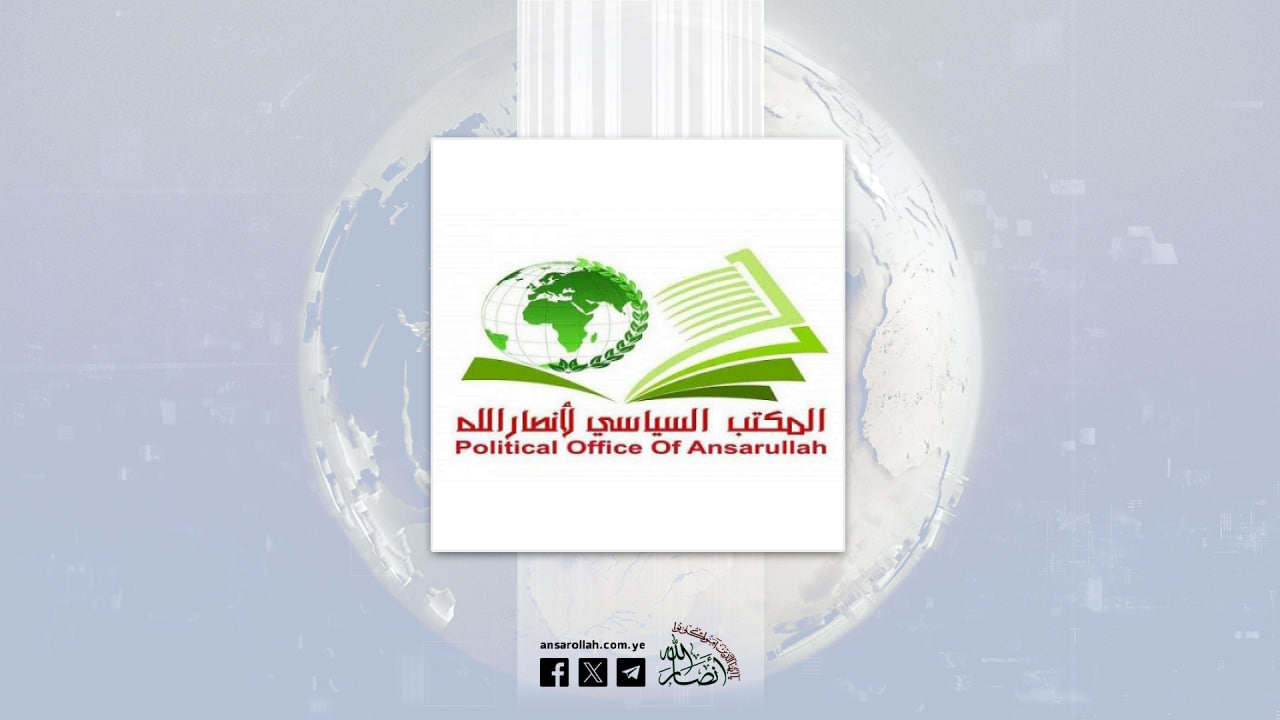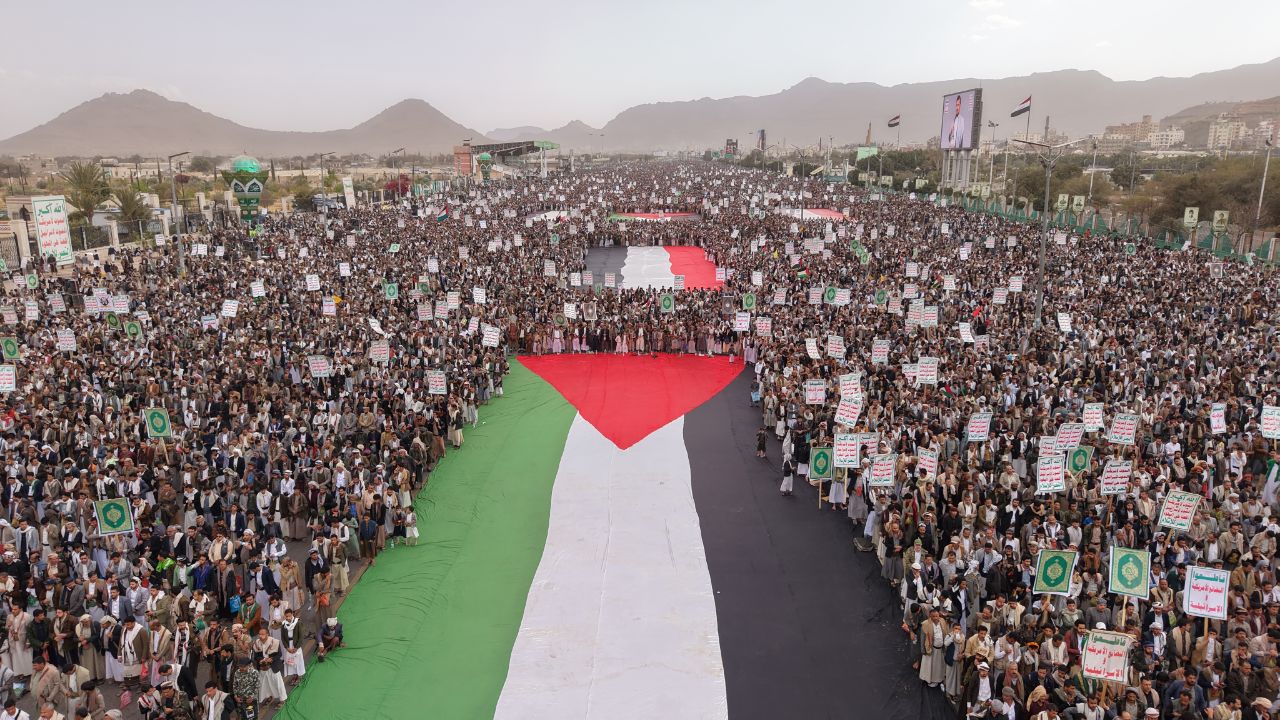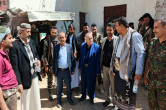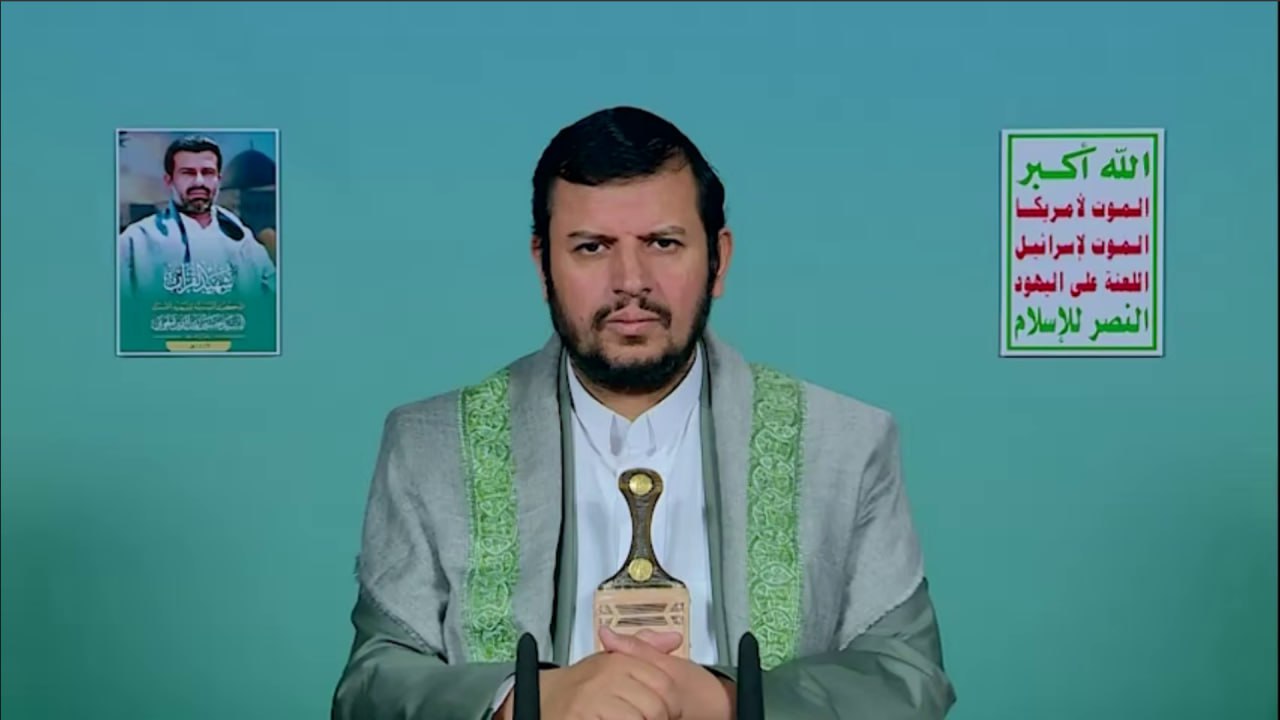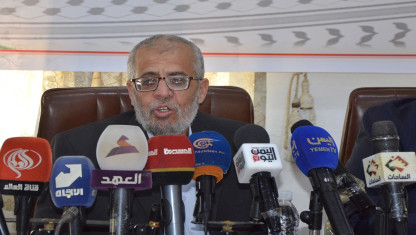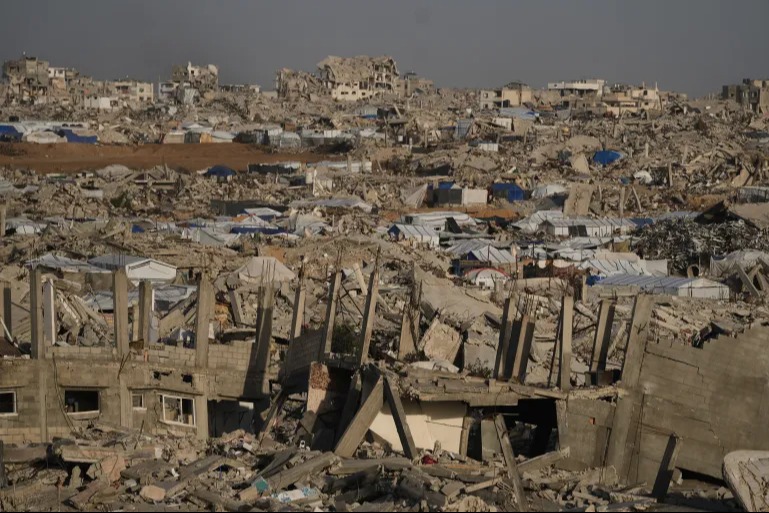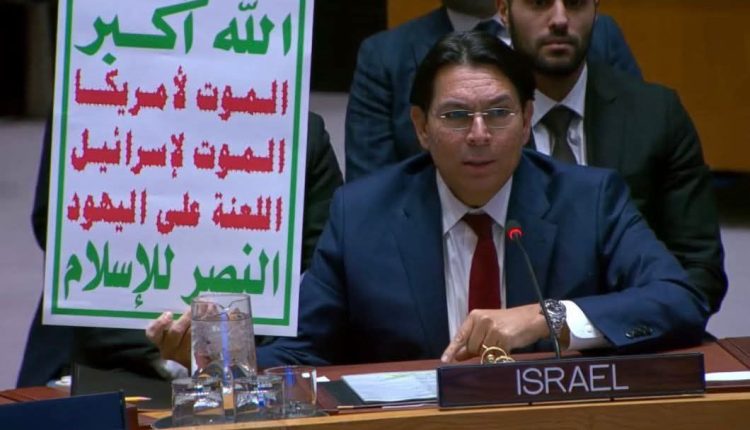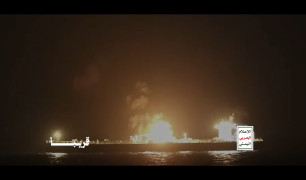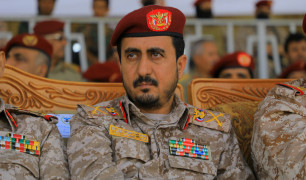رابطة علماء اليمن: نؤكد تضامننا مع باكستان الإسلامية وندعو الأمة إلى التضامن معها ومع الجمهورية الإسلامية في إيران ومع غزة وفلسطين ومع حزب الله كون المعركة واحدة
رابطة علماء اليمن: نؤكد أن مثل هذه الجرائم لا تمت إلى الإسلام بصلة والإسلام منها براء وهي جرائم شبيهة بالجرائم الصهيونية في غزة
رابطة علماء اليمن: جريمة تفجير المسجد تعتبر إعادة تدوير للأدوات التكفيرية لتساهم في تنفيذ الأهداف الأمريكية داخل الأمة
رابطة علماء اليمن: ندعو المسلمين إلى أعلى درجات الوعي واليقظة أمام المؤامرات الأمريكية التي تستهدف وحدة الأمة
رابطة علماء اليمن: نحمّل أمريكا المسؤولية عن جريمة تفجير المسجد في باكستان بالشراكة مع أدواتها التكفيرية
رابطة علماء اليمن: ندين الجريمة المروعة والتفجير الإجرامي الذي استهدف مسجدا بالعاصمة الباكستانية وأدى إلى سقوط عشرات الشهداء والجرحى
مصادر فلسطينية: أجهزة أمن السلطة تفجر عبوات ناسفة بعد العثور عليها في مدينة طوباس بالضفة الغربية المحتلة
مصادر فلسطينية: آليات العدو تُطلق نيرانها تجاه مناطق شرق مدينة خان يونس جنوب قطاع غزة
مصادر فلسطينية: استشهاد شابة متأثرة بجروحها نتيجة قصف صهيوني قبل أيام على منطقة أصداء شمال غرب مدينة خان يونس جنوب القطاع
مصادر سورية: مدفعية العدو الإسرائيلي تطلق قذائف من الجولان المحتل باتجاه الأراضي الزراعية في ريف القنيطرة الأوسط

